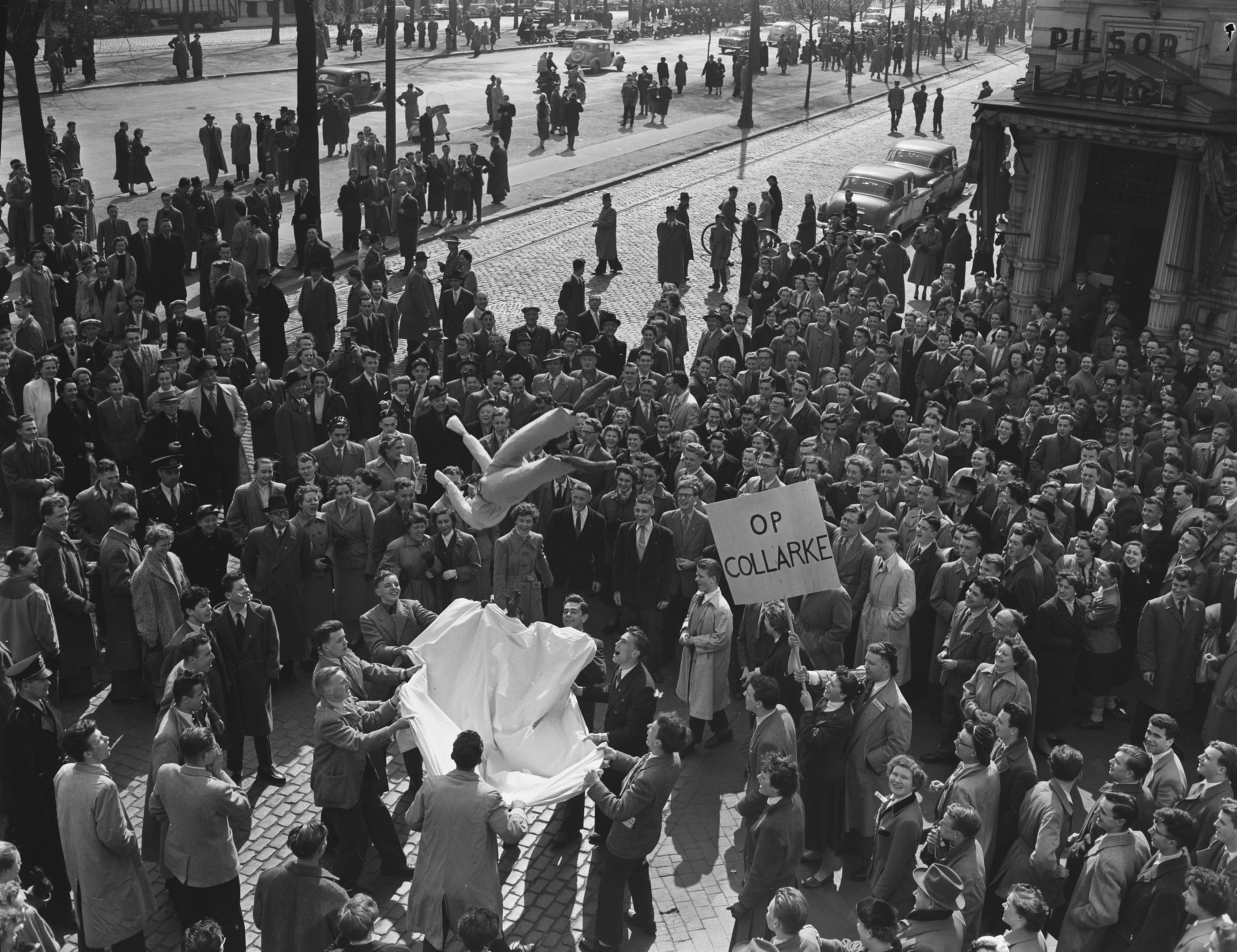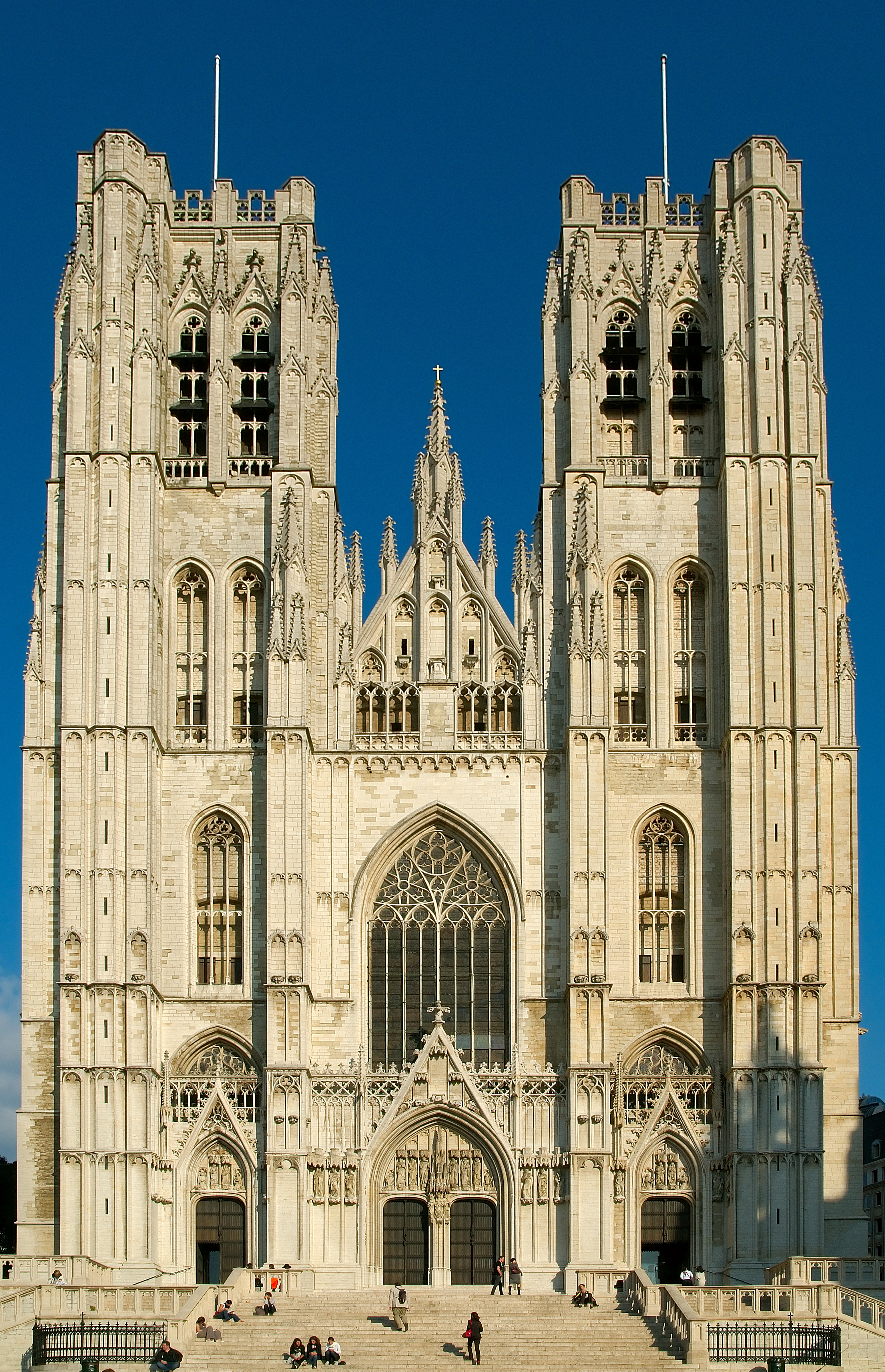|
Irreligion In Belgium
Irreligion in Belgium pertains to citizens of Belgium that are atheist, agnostic, or otherwise unaffiliated with any religion. Irreligion is the second most common religious stance in Belgium, following Catholicism. History The Constitution of Belgium guaranteed the right to freedom of religion when it was enacted in 1831. Articles 19-21 provide for protections of secularism: the Constitution of Belgium guarantees the freedom of worship and its public practice, forbids the obligation of any religious practices, and disallows government intervention or involvement in a religion's leadership. The First School War was a dispute between Catholicism and secularism in schools in the 1880s. The dispute was revived in the Second School War in the 1950s. Demographics Religion has declined in Belgium, though Catholicism still remains large among the Belgian population. As of 2018, 29.3% of Belgians are irreligious. 20.2% of Belgians identify as not religious, while 9.1% identify as ath ... [...More Info...] [...Related Items...] OR: [Wikipedia] [Google] [Baidu] |
Buddhism
Buddhism ( , ), also known as Buddha Dharma and Dharmavinaya (), is an Indian religion or philosophical tradition based on teachings attributed to the Buddha. It originated in northern India as a -movement in the 5th century BCE, and gradually spread throughout much of Asia via the Silk Road. It is the world's fourth-largest religion, with over 520 million followers (Buddhists) who comprise seven percent of the global population. The Buddha taught the Middle Way, a path of spiritual development that avoids both extreme asceticism and hedonism. It aims at liberation from clinging and craving to things which are impermanent (), incapable of satisfying ('), and without a lasting essence (), ending the cycle of death and rebirth (). A summary of this path is expressed in the Noble Eightfold Path, a training of the mind with observance of Buddhist ethics and meditation. Other widely observed practices include: monasticism; " taking refuge" in the Buddha, the , and the ; ... [...More Info...] [...Related Items...] OR: [Wikipedia] [Google] [Baidu] |
Second School War
The Second School War (french: Deuxième guerre scolaire, nl, Tweede schoolstrijd) was a political crisis in Belgium over the issue of religion in education. The conflict lasted between 1950 and 1959 and was ended by a cross-party agreement, known as the School Pact, which clarified the role of religion in the state. It followed a crisis over the same issue in the 19th century, known as the First School War. Crisis After victory in the Belgian general election, 1950, 1950 elections, a Christian Social Party (Belgium, defunct), Christian Social Party (PSC-CVP) majority government came to power in Belgium for the first time since the end of World War II. The new education minister, Pierre Harmel, used the PSC-CVP's position to increase the wages paid to teachers in private (mainly Roman Catholic) schools and introduced laws linking the subsidies for private schools to the number of pupils. These measures were perceived by the traditionally-anticlerical Liberal Party (Belgium), Liber ... [...More Info...] [...Related Items...] OR: [Wikipedia] [Google] [Baidu] |
Religion In Belgium
Religion in Belgium is diversified, with Christianity, in particular, the Catholic Church, representing the largest community, though it has experienced a significant decline since the 1960s (when it was the nominal religion of over 80% of the population). Belgium's policy separates the state from the churches, and freedom of religion of the citizens is guaranteed by the country's constitution. According to the Eurobarometer poll carried out by the European Commission in December 2018, the share of Christians increased by 10% points from 52.5% in 2009 to 62.8% in 9 years, with Catholicism being the largest denomination at 57.1%. Protestants comprised 2.3% and Orthodox Christians comprised 0.6%. Non-religious people comprised 29.3% of the population and were divided between those who primarily identified as atheists (9.1%) or as agnostics (20.2%). A further 6.8% of the population was Muslim and 1.1% were believers in other religions. On the other hand, the following Eurobaro ... [...More Info...] [...Related Items...] OR: [Wikipedia] [Google] [Baidu] |
Freedom Of Religion In Belgium
The Constitution provides for freedom of religion, and the Government generally respected this right in practice. However, government officials continued to have the authority to research and monitor religious groups that are not officially recognized. There were few reports of societal abuses or discrimination based on religious belief or practice. Some reports of discrimination against minority religious groups surfaced, as well. Religious demography The Government of Belgium does not keep statistics listing religious affiliation but the population is predominantly Roman Catholic, according to a 2006 government report and a university study issued in 2000. According to a separate survey issued in 2000, which surveyed philosophical orientation based on self-identification, 47 percent of the population identify themselves as practicing Catholics, but a slightly larger number, 57.3 percent, identify themselves as belonging to the Catholic Church. Fifteen percent identify themsel ... [...More Info...] [...Related Items...] OR: [Wikipedia] [Google] [Baidu] |
Demographics Of Belgium
This article is about the demographic features of the population of Belgium, including ethnicity, education level, health of the populace, economic status, religious affiliations and other aspects of the population. All figures are from the National Institute for Statistics unless otherwise indicated. Population Belgium had a population of 11,190,846 people on 1 January 2015 as compared to the 10,839,905 people on 1 January 2010, an increase of 601,000 in comparison to 2000 (10,239,085 inhabitants). Between 1990 (9,947,782 inhabitants) and 2000 the increase was only 291,000. As of January 1, 2020, Belgium has a population of 11,492,641 and is the 80th most populous country in the world. The population of Flanders, Wallonia and Brussels on January 1, 2019 was 6,589,069 (57.6% of Belgium), 3,633,795 (31.8% of Belgium) and 1,208,542 (10.6% of Belgium), respectively. The population density of Belgium is as of July 1, 2020, making it the 22nd most densely populated country in th ... [...More Info...] [...Related Items...] OR: [Wikipedia] [Google] [Baidu] |
Organized Secularism
In Belgium, organized secularism (french: Laïcité organisée, nl, georganiseerde vrijzinnigheid) is the local associations and organizations which provide moral support for naturalist, atheist, agnostic, secular humanist, freethinking, Bright, or irreligious and non-confessional citizens. A person who subscribes to such entities or ideologies, or at least espouses an interest in "free inquiry" apart from religious traditions is described as a "secular" or "free-thinker" (french: laïque, nl, vrijzinnig). In Dutch-speaking Belgium, the leading humanist group is ''deMens.nu'' (Humanity Now, formerly known as the Union of Liberal Associations), which acts as a national federation for the non-religious and an umbrella group for local "liberal humanist" and freethought associations. In French-speaking Belgium it is the ''Centre d'Action Laïque'' (CAL, or Centre for Secular Action). In contrast to the French model for communal organization for irreligionists and nontheists, the ... [...More Info...] [...Related Items...] OR: [Wikipedia] [Google] [Baidu] |
Organized Secularism
In Belgium, organized secularism (french: Laïcité organisée, nl, georganiseerde vrijzinnigheid) is the local associations and organizations which provide moral support for naturalist, atheist, agnostic, secular humanist, freethinking, Bright, or irreligious and non-confessional citizens. A person who subscribes to such entities or ideologies, or at least espouses an interest in "free inquiry" apart from religious traditions is described as a "secular" or "free-thinker" (french: laïque, nl, vrijzinnig). In Dutch-speaking Belgium, the leading humanist group is ''deMens.nu'' (Humanity Now, formerly known as the Union of Liberal Associations), which acts as a national federation for the non-religious and an umbrella group for local "liberal humanist" and freethought associations. In French-speaking Belgium it is the ''Centre d'Action Laïque'' (CAL, or Centre for Secular Action). In contrast to the French model for communal organization for irreligionists and nontheists, the ... [...More Info...] [...Related Items...] OR: [Wikipedia] [Google] [Baidu] |
Pillarization
Pillarisation (from the nl, verzuiling) is the politico-denominational segregation of a society into groups by religion and associated political beliefs. These societies were (and in some areas, still are) vertically divided into two or more groups known as pillars (Dutch: ''zuilen''). The best-known examples of this have historically occurred in the Netherlands and Belgium. Each pillar may have its own social institutions and social organizations. These may include its own newspapers, broadcasting organisations, political parties, trade unions, farmers' associations, banks, stores, schools, hospitals, universities, scouting organisations and sports clubs. Such segregation means that many people have little or no personal contact with members of other pillars. Netherlands The Netherlands had at least three pillars, namely Protestant, Catholic and social-democratic. Pillarisation was originally initiated by Abraham Kuyper and his Christian Democratic and neo-Calvinist ('' ge ... [...More Info...] [...Related Items...] OR: [Wikipedia] [Google] [Baidu] |
The Gallup Organization
Gallup, Inc. is an American analytics and advisory company based in Washington, D.C. Founded by George Gallup in 1935, the company became known for its public opinion polls conducted worldwide. Starting in the 1980s, Gallup transitioned its business to focus on providing analytics and management consulting to organizations globally. In addition to its analytics, management consulting, and Gallup Poll, the company also offers educational consulting, the StrengthsFinder, CliftonStrengths assessment and associated products, and business and management books published by its Gallup Press unit. Organization Gallup is a private, employee-owned company based in Washington, D.C. Its headquarters is located at The Gallup Building. It maintains between 30 and 40 offices globally, including offices at the Gallup Riverfront Campus in Omaha, Nebraska, and has about 2,000 employees. Jon Clifton is Gallup's CEO. Gallup, Inc. has no affiliation with Gallup International Association, Gallup In ... [...More Info...] [...Related Items...] OR: [Wikipedia] [Google] [Baidu] |
First School War
The First School War (french: Première guerre scolaire, nl, Eerste schoolstrijd) was a political crisis in Belgium over the issue of religion in education. The School War marks the high water mark of the conflict between the conservative Catholic Party, and the secular Liberal Party. The war lasted from 1879 to 1884 and resulted in a period of nearly fifty years of Catholic political dominance. It was followed by a Second School War between 1950 and 1959. Background In the preceding centuries, education in Belgium had been dominated by the Catholic Church. In 1842, a new education law formalized religious education in primary schools, while also conceding the freedom of education guaranteed in Article 17 of the Constitution of 1831: Under the terms of Article 6 of the Education Act of 1842: In practice, the interpretation of the law varied and, since the vast majority of the Belgian population was Catholic, the Church was allowed considerable influence in schools. The qualit ... [...More Info...] [...Related Items...] OR: [Wikipedia] [Google] [Baidu] |
Islam
Islam (; ar, ۘالِإسلَام, , ) is an Abrahamic religions, Abrahamic Monotheism#Islam, monotheistic religion centred primarily around the Quran, a religious text considered by Muslims to be the direct word of God in Islam, God (or ''Allah'') as it was revealed to Muhammad, the Muhammad in Islam, main and final Islamic prophet.Peters, F. E. 2009. "Allāh." In , edited by J. L. Esposito. Oxford: Oxford University Press. . (See alsoquick reference) "[T]he Muslims' understanding of Allāh is based...on the Qurʿān's public witness. Allāh is Unique, the Creator, Sovereign, and Judge of mankind. It is Allāh who directs the universe through his direct action on nature and who has guided human history through his prophets, Abraham, with whom he made his covenant, Moses/Moosa, Jesus/Eesa, and Muḥammad, through all of whom he founded his chosen communities, the 'Peoples of the Book.'" It is the Major religious groups, world's second-largest religion behind Christianity, w ... [...More Info...] [...Related Items...] OR: [Wikipedia] [Google] [Baidu] |


.jpg)



.jpg)